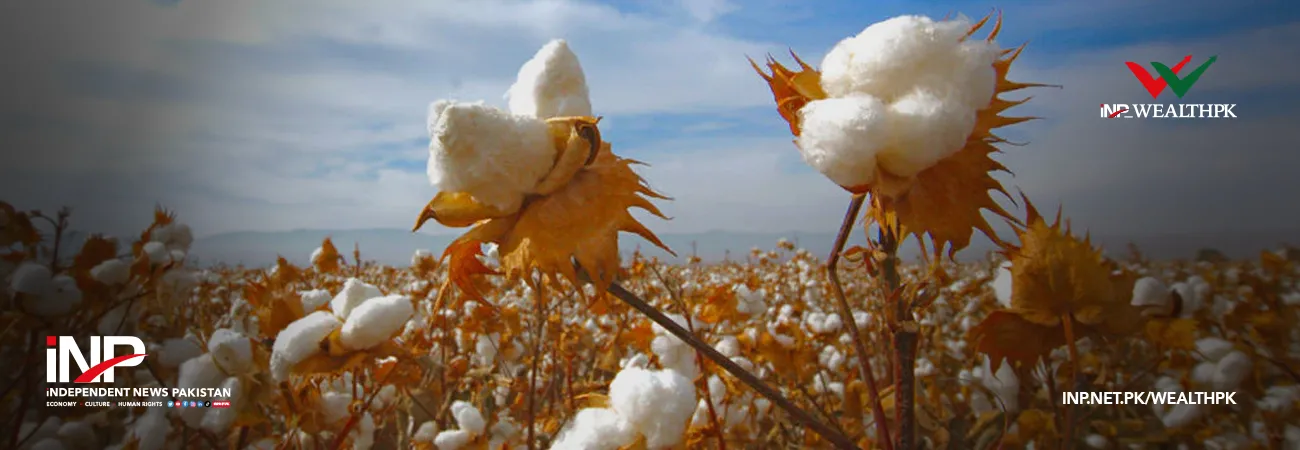INP-WealthPk
Muhammad Saleem
After suffering massive losses due to the countrywide flash floods last year, Pakistan has this year harvested a bumper cotton crop that is enough to meet the requirements of its textile sector, reports WealthPK. Pakistan’s textile sector always strives to keep its hold in the international market by outclassing its business rivals. However, cotton shortage in the last two years restricted its efforts, forcing it to import the commodity from India through different routes. This year, entrepreneurs in the cotton sector are very happy due to the bumper cotton crop that is enough to meet the domestic and international targets. Talking to WealthPK, Zia Shah, former vice-chairman of Pakistan Hosiery Manufacturers Association and ex-president of Faisalabad Chamber of Commerce, said without implementing business-friendly policies, the textile sector could not draw maximum benefits from the bumper cotton crop due to the unbridled prices of gas and electricity.
“If the utility rates continue to increase, how can we run our units?” he asked. He said even after signing an agreement with the International Monetary Fund (IMF), the government could arrange electricity for the industry at affordable rates. He said the government had to adopt a sales strategy technique. Giving an example, he said if someone used more electricity, the government should reduce the rate but it was doing the opposite. With the help of this method, the government will not have to extend any subsidy to anyone and will be in a position to pull the textile sector out of the prevailing crisis. Media reports say more than 5 million cotton bales have been given to the ginning units a couple of months ago. Shah said a bumper crop did not mean that it would resolve all issues of the industry.
Without any strategy, neither industrialists nor government can extract any positive results from this bumper crop. He said it's a good sign that the government had focussed on increasing the cotton yield following last year's disaster. The bumper crop would certainly have an exceptional impact on the textile sector if the government introduced a conducive policy, he remarked. “A strong policy for the textile sector will surely strengthen the national economy, generate more jobs, reduce poverty and restore the shattered confidence of international buyers,” he asserted. “For a couple of months, the millers have not been in a position to run their businesses smoothly and that's why we are trying to make the people at the helm realise the industry’s problems”.
Imran Rafi, a yarn trader, said a bumper crop this year will inject a new blood into the yarn business. He said abundant supply of yarn by the spinning mills would surely help the industry weave more fabric without tension. “When the millers have to import cotton from India and other countries, then they have to pay high rates which ultimately hit the production cycle of the textile sector. The high cost of doing business is already hampering the business activities and the influx of local cotton will surely provide a huge relief,” Imran said. He suggested that the government monitor the price mechanism of cotton and yarn; otherwise, unscrupulous elements will try to exploit the situation by creating artificial shortage.
Credit: INP-WealthPk













